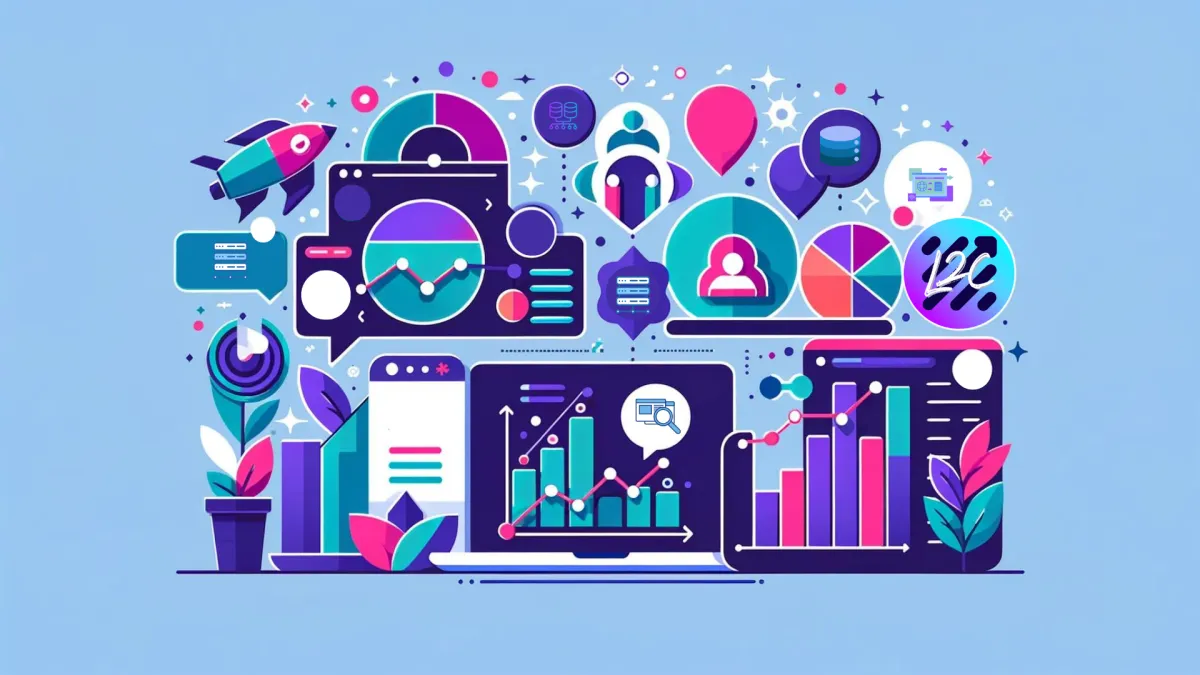
Lead2Client CRM
Learn Tips and Tricks Used by Successful Agents

Transforming Final Expense Insurance with Automation
Comprehensive Guide to Final Expense Insurance: Protecting Your Loved Ones
Final expense insurance, also known as burial or funeral insurance, is designed to cover end-of-life expenses. It is a type of permanent life insurance, but with smaller coverage amounts. The purpose is to alleviate the financial burden associated with passing away from the shoulders of the loved ones. The funds can be used for anything, including unpaid medical bills, legal costs, or funeral and burial costs.
Getting a final expense insurance policy can be considered a thoughtful and practical step. This insurance policy differs from generic life insurance policies because it has a specific set of benefits. It's primarily designed for seniors, but people from different age groups can benefit due to its relatively easier approval process. Many insurance agencies have recognized the need for such policies and are meeting the demand, making it a prevalent option nowadays.
The Need for Automation in the Insurance Industry
The insurance industry is an ancient business sector, having thrived for centuries majorly on traditional operational models. While these models have been rewarded with success in the past, the contemporary business world necessitates a shift towards more modern, digital modes of operation. As a result, the insurance industry now sits at a pivotal juncture, with widespread recognition of the need for automation in its processes for improved efficiency and customer satisfaction.
Incorporating automation in insurance procedures can significantly streamline the complex, tedious tasks that abound in the industry. Actuarial calculations, policy renewals, claim processing - these are just a few areas that could benefit massively from automation. Additionally, automation could free up valuable manpower, that can be redirected to more strategic tasks such as crafting novel insurance products and improving customer relationships. Indeed, from alleviating process bottlenecks to enhancing product offerings, automation is poised to be the future game-changer in the insurance industry.
How Technology is Changing the Insurance Landscape
The landscape of the insurance sector is currently experiencing transformative changes, largely fuelled by advancements in technology. Traditional modes of operation that involve manual and paper-based systems are gradually being phased out, incorporating smarter and more efficient means of conducting business. Filing of claims, for instance, that previously required piles of paperwork and inconvenient visits to the company can now be conveniently done through online platforms. This shift towards a more digitized business environment has not only improved the operational efficiency of insurance companies but also enhanced the customer experience dramatically.
The trend in technological innovations springs from the need to meet the rising expectations of tech-savvy clients demanding swift and convenient services. It's worth noting that this shift doesn't merely revolve around client-facing operations. Internal processes are equally affected - a phenomenon apparent in the increased use of automation and AI in underwriting and risk assessment procedures. Things like policy administration and claims management have become quicker and less prone to errors, effectively saving time and cost for the companies. Moreover, these improvements extend beyond service delivery, reaching out to impact areas like marketing and data management. That thud you hear is the sound of the insurance landscape irrevocably changing under the heavy hand of technology.
The Role of Automation in Streamlining Final Expense Insurance
In the changing landscape of the insurance industry, automation has emerged as a key player in streamlining final expense insurance. The role of automation is gaining significance due to its efficiency, accuracy, and time-saving qualities. Automation helps to simplify complex processes like policy issuance, claim handling, and renewal reminders, which were traditionally handled manually. These processes are now being carried out more efficiently and accurately, reducing the risk of human errors and increasing the speed of service.
Interestingly, the implementation of automation in final expense insurance has not just streamlined operations for the insurance companies. It also improves the overall customer experience. Modern-day customers expect quick, hassle-free transactions, and unsurprisingly, automation delivers just that. An automated system can speed up the process of buying a policy, submitting a claim, or getting an insurance payout in a hassle-free manner. Thus, automation shapes the way final expense insurance operates, directly impacting the effectiveness and satisfaction in customer-company interactions.
Benefits of Automating Final Expense Insurance Processes
Automation carries numerous potential benefits when utilized in final expense insurance processes. One of the most visible advantages is its liberating impact on agents, who find their time freed up from basic, repetitive tasks. The automation of routine actions such as data entry and form submissions allows agents to focus their energy where it truly counts: in satisfying client needs and enhancing relationships.
Meanwhile, companies utilizing automated processes report a significant boost in efficiency and accuracy. By eliminating the possibility of human error in mundane tasks, automation can streamline operations and improve the quality of service. Moreover, it gives immediate access to relevant client information, making it much easier to tailor services to individual needs. This increases customer satisfaction and opens new doors for upselling and cross-selling opportunities.
In addition, automation also provides a more consistent and reliable service. Since automated processes follow the same steps every time, there is less room for deviation or mistakes. This not only ensures that clients receive the same high-quality service each time but also helps to maintain a company's reputation for reliability and professionalism.
• Automation frees up agents' time from repetitive tasks such as data entry and form submissions.
• It allows agents to focus on satisfying client needs and enhancing relationships.
• Companies using automated processes report increased efficiency and accuracy in their operations.
• The risk of human error is significantly reduced with automation.
• Automated systems provide immediate access to relevant client information, making it easier to tailor services according to individual needs.
• Automation increases customer satisfaction by providing consistent high-quality service each time.
• It opens new doors for upselling and cross-selling opportunities by improving the quality of service.
Furthermore, automating final expense insurance processes can lead to cost savings. By reducing the amount of manual labor needed, companies can lower their operational costs. Plus, since automated systems are typically faster than humans at completing tasks, they can process more applications in less time – leading to higher productivity levels.
Finally, security is another significant advantage provided by automation. With robust security measures built into most modern automation software tools, sensitive client data remains protected against potential breaches.
To sum up:
• Automation reduces operational costs through decreased reliance on manual labor
.• Faster processing times achieved with automation lead to higher productivity levels
.• Modern automation software tools have robust security measures ensuring protection of sensitive client data.
Challenges Faced in Automation Implementation
Automation in the insurance sector, while bringing a myriad of benefits, is not without its challenges. Renovating traditional workflows to integrate automated systems requires substantial capital investment. This significant upfront cost can be a major hurdle for smaller firms and those with tight resource constraints. Additionally, the transition can disrupt ongoing operations, which could potentially hamper customer satisfaction and respect for the brand in the short term.
On the other hand, there's the challenge of integrating old and new systems. Businesses usually have existing hardware and software infrastructures in place. These may not be fully compatible with modern automated systems, creating a unique set of problems. There's a need for careful planning and precise execution to ensure a smooth technological transition. It's also essential for the staff to adapt to new methods smoothly so that the operations continue to run efficiently. Training employees and bringing them up-to-speed with the newly introduced technologies is another task that should be managed well.
Future Trends: AI and Machine Learning in Final Expense Insurance
AI and machine learning are the future trends that are set to revolutionize the final expense insurance industry. These technologies will help insurance companies make more accurate predictions based on historical data. Sophisticated algorithms can sift through large datasets, analyze risk profiles, and calculate premiums accurately. The process is faster, more efficient, and eliminates the chances for human error.
AI can also streamline the underwriting process in final expense insurance. Complex AI systems can quickly oversee the underwriting rules and determine the eligibility of an applicant based on predefined criteria. Machine learning, on the other hand, allows these systems to learn and evolve with each interaction, becoming increasingly accurate in their risk assessments and predictions. The AI will explore new patterns, refine the underwriting rules, and improve the overall decision-making process. Eventually, this could lead to more personalized policies and better pricing strategies. These technologies promise a more efficient and customer-friendly approach to insurance.
Customer Data in an Automated System
In the diverse and tech-savvy landscape of the insurance industry, protecting customer data is a top priority. The transition from manual processes to automated systems can often raise concerns about data privacy and security. It's important to remember that the deployment of automation doesn't often mean a compromise on data security. Automation systems are designed with numerous safeguards that are dedicated to preserving the confidentiality and integrity of customer information.
The key to safeguarding data in an automated system primarily lies in stringent data security measures. Encryption of sensitive data, multi-factor authentication, and restricted access are some strategies currently employed. This adds an extra layer of security, preventing unauthorized access to the system. Regular system audits and network monitoring tools are typically used to ensure any inappropriate access or potential breaches can be quickly identified and resolved. Despite the move toward automated systems, data security remains a central focus in the insurance industry and should be a major consideration in the selection of any CRM platform.
The Future of Automation in Final Expense Insurance
Even though automation in final expense insurance is just on the horizon, we can't deny its promising potential to revolutionize the industry. From streamlining complex insurance processes to ensuring superior customer experiences, automation holds the keys to a future where tedious manual tasks are automated and accuracy is enhanced. While the transition to fully automated systems might not occur overnight, the rapid pace of technological innovation and digitalization suggests that the future of final expense insurance is indeed heading in this direction.
Despite the technological breakthrough, it's crucial to remember that the heart of every insurance policy is to offer protection and peace of mind to the policyholder. Regardless of how sophisticated technology becomes, the human touch in dealing with customers remains irreplaceable. With the proper balance of technology and human interaction, the future of automated final expense insurance will not only bring about operational efficiency but also maintain the emotional connectivity that is the cornerstone in the realm of insurance.
FEATURES
Insights
Dashboard
Outbound Calling
Appointment Automation
Reputation Management
Unified Messaging
Lead Management
Easy Integration
Mobile App
contact us
Let's talk about what Lead2Client CRM can do for your business.
© 2024 | Lead2Client CRM | All Rights Reserved